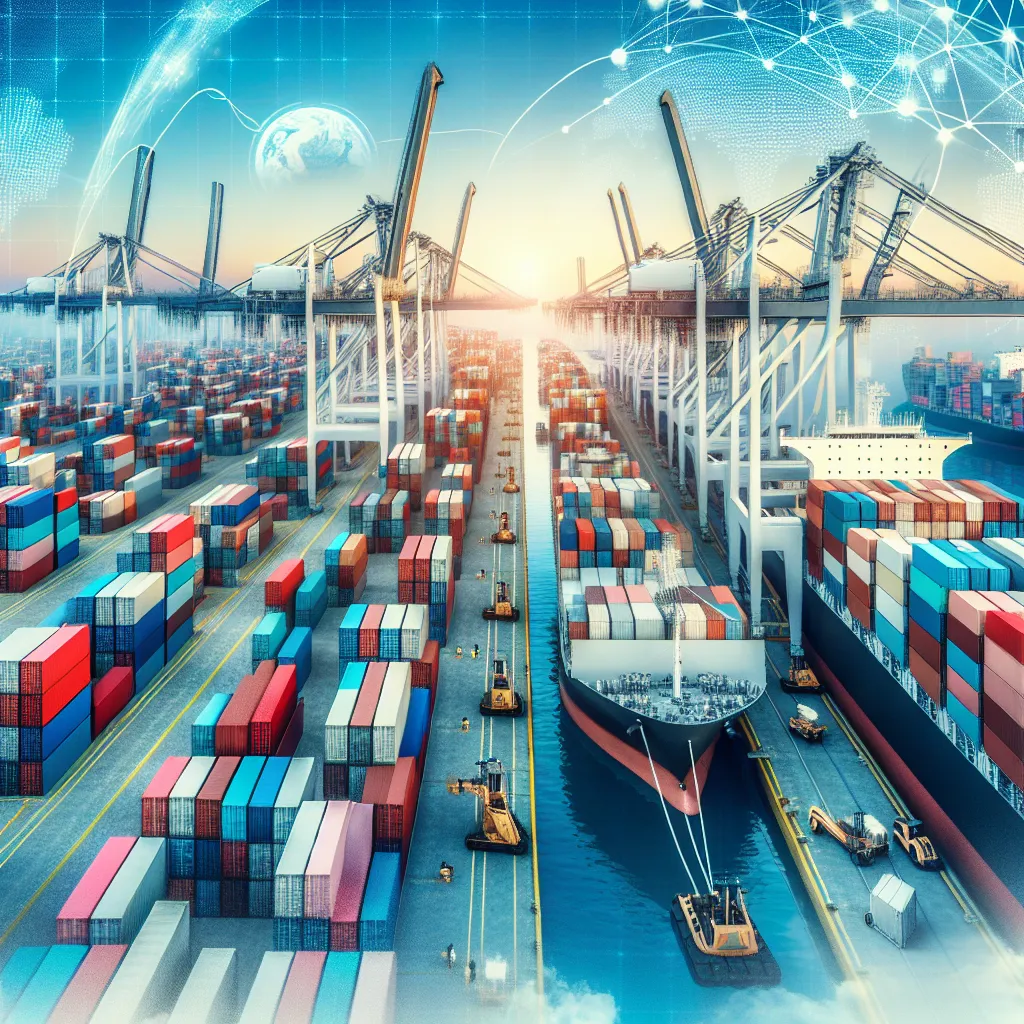How Forwarding Services Are Reshaping Global Supply Chains
Forwarding services play a crucial role in reshaping global supply chains, impacting various aspects of the logistics and shipping industry. These services are instrumental in enhancing the efficiency, reliability, and cost-effectiveness of supply chain operations, thereby contributing to the seamless movement of goods across the globe.
One significant aspect of how forwarding services are reshaping global supply chains is through the optimization of transportation routes. By leveraging their expertise and technological tools, forwarding companies can analyze and identify the most efficient transport routes, reducing transit times and minimizing transportation costs. This optimization not only enhances the overall speed of delivery but also contributes to reducing the environmental impact of supply chain operations.
Furthermore, forwarding services have been pivotal in facilitating the integration of different modes of transportation within global supply chains. Through their network and resources, forwarding companies can coordinate and manage the smooth transition of goods between various transportation methods, such as air freight, ocean freight, rail, and trucking. This seamless multimodal approach enhances flexibility and resilience within supply chains, especially in handling complex logistics scenarios.
In addition, the digitalization of forwarding services has significantly transformed global supply chains. Advanced tracking systems, electronic documentation, and real-time communication platforms have revolutionized the visibility and transparency of supply chain operations. This digital transformation enables stakeholders to have real-time insights into the movement of goods, leading to better decision-making, improved risk management, and enhanced customer satisfaction.
Overall, forwarding services play a pivotal role in reshaping global supply chains by driving efficiency, integration, and digitalization. As the demands of the global market continue to evolve, the strategic role of forwarding in supply chain management is set to expand, further optimizing the movement of goods across the world.
The Role of Forwarding in Optimizing Global Logistics Networks
Forwarding plays a crucial role in optimizing global logistics networks and has a significant impact on supply chains worldwide. Efficient forwarding involves the smooth coordination and management of shipments as they move through various transportation modes and across international borders. By leveraging strategic partnerships and extensive networks, forwarders are able to provide solutions that enhance the overall efficiency of global supply chains.
One of the key aspects of the forwarding process is its ability to streamline the movement of goods, reduce transit times, and minimize the risk of delays and disruptions. Through effective planning and coordination, forwarders can select the most efficient and cost-effective routes for transporting goods, taking into account factors such as transportation mode, transit time, and customs considerations. This optimization of transportation routes and methods not only improves overall supply chain efficiency but also helps in reducing costs and environmental impact.
Furthermore, forwarders play a vital role in ensuring compliance with import/export regulations and requirements, which is essential for the smooth flow of goods across borders. They possess the expertise to navigate complex customs procedures and documentation, minimizing the risk of delays and penalties. By staying updated with the latest regulatory changes and trade agreements, forwarders help companies navigate the complexities of global trade and ensure seamless movement of goods.
In conclusion, forwarding serves as a critical element in the optimization of global logistics networks. Its role in streamlining transportation, managing regulatory compliance, and minimizing risks contributes to the overall efficiency and resilience of supply chains on a global scale.
Challenges and Opportunities in Forwarding for Global Supply Chain Resilience
Global supply chains are essential for the efficient movement of goods and materials across the world, and the role of forwarding in these supply chains is crucial. However, the forwarding industry faces a number of challenges that can impact the resilience of global supply chains, while also presenting opportunities for improvement.
One of the key challenges in forwarding for global supply chain resilience is the complexity of international logistics. Dealing with multiple countries, regulations, and modes of transportation can lead to delays, increased costs, and potential disruptions. Additionally, geopolitical tensions and trade conflicts can further complicate forwarding operations, requiring forwarders to have a deep understanding of international trade dynamics.
Another challenge is the need for streamlined and efficient communication and data management. In the era of digital transformation, forwarders must leverage technology to track shipments in real time, manage inventory effectively, and mitigate risks. With the increasing demand for transparency and visibility in supply chains, forwarders need to invest in sophisticated IT solutions to meet these expectations.
Despite these challenges, there are significant opportunities for improving forwarding practices to enhance global supply chain resilience. For instance, the adoption of advanced analytics and predictive modeling can help forwarders anticipate potential disruptions and take proactive measures to mitigate their impact. Moreover, embracing sustainable practices and implementing green logistics solutions can not only contribute to environmental conservation but also lead to cost savings and operational efficiencies.
Furthermore, collaboration and partnerships within the forwarding industry can foster resilience in global supply chains. By working closely with carriers, custom brokers, and other stakeholders, forwarders can create integrated solutions that optimize the entire supply chain, enhancing its ability to adapt to unexpected events and changes in market conditions.
In conclusion, the challenges and opportunities in forwarding for global supply chain resilience are interconnected. By addressing the complexities and investing in innovative solutions, forwarders can contribute to the robustness and adaptability of global supply chains, ultimately ensuring the efficient flow of goods and materials worldwide.




